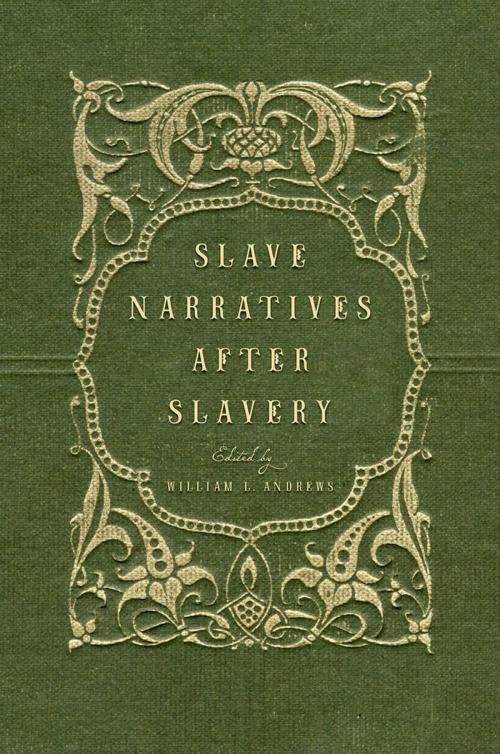Slave Narratives after Slavery
Fiction & Literature, Literary Theory & Criticism, Black, American, Nonfiction, History, Americas, United States, 19th Century| Author: | ISBN: | 9780199831227 | |
| Publisher: | Oxford University Press | Publication: | April 25, 2011 |
| Imprint: | Oxford University Press | Language: | English |
| Author: | |
| ISBN: | 9780199831227 |
| Publisher: | Oxford University Press |
| Publication: | April 25, 2011 |
| Imprint: | Oxford University Press |
| Language: | English |
The pre-Civil War autobiographies of famous fugitives such as Frederick Douglass, William Wells Brown, and Harriet Jacobs form the bedrock of the African American narrative tradition. After emancipation arrived in 1865, former slaves continued to write about their experience of enslavement and their upward struggle to realize the promise of freedom and citizenship. Slave Narratives After Slavery reprints five of the most important and revealing first-person narratives of slavery and freedom published after 1865. Elizabeth Keckley's controversial Behind the Scenes (1868) introduced white America to the industry and progressive outlook of an emerging black middle class. The little-known Narrative of the life of John Quincy Adams, When in Slavery, and Now as a Freeman (1872) gave eloquent voice to the African American working class as it migrated from the South to the North in search of opportunity. William Wells Brown's My Southern Home (1880) retooled the image of slavery delineated in his widely-read antebellum Narrative and offered his reader a first-hand assessment of the South at the close of Reconstruction. Lucy Ann Delaney used From the Darkness Cometh the Light (1891) to pay tribute to her enslaved mother and to exemplify the qualities of mind and spirit that had ensured her own fulfillment in freedom. Louis Hughes's Thirty Years a Slave (1897) spoke for a generation of black Americans who, perceiving the spread of segregation across the South, sought to remind the nation of the horrors of its racial history and of the continued dedication of the once enslaved to dignity, opportunity, and independence.
The pre-Civil War autobiographies of famous fugitives such as Frederick Douglass, William Wells Brown, and Harriet Jacobs form the bedrock of the African American narrative tradition. After emancipation arrived in 1865, former slaves continued to write about their experience of enslavement and their upward struggle to realize the promise of freedom and citizenship. Slave Narratives After Slavery reprints five of the most important and revealing first-person narratives of slavery and freedom published after 1865. Elizabeth Keckley's controversial Behind the Scenes (1868) introduced white America to the industry and progressive outlook of an emerging black middle class. The little-known Narrative of the life of John Quincy Adams, When in Slavery, and Now as a Freeman (1872) gave eloquent voice to the African American working class as it migrated from the South to the North in search of opportunity. William Wells Brown's My Southern Home (1880) retooled the image of slavery delineated in his widely-read antebellum Narrative and offered his reader a first-hand assessment of the South at the close of Reconstruction. Lucy Ann Delaney used From the Darkness Cometh the Light (1891) to pay tribute to her enslaved mother and to exemplify the qualities of mind and spirit that had ensured her own fulfillment in freedom. Louis Hughes's Thirty Years a Slave (1897) spoke for a generation of black Americans who, perceiving the spread of segregation across the South, sought to remind the nation of the horrors of its racial history and of the continued dedication of the once enslaved to dignity, opportunity, and independence.















